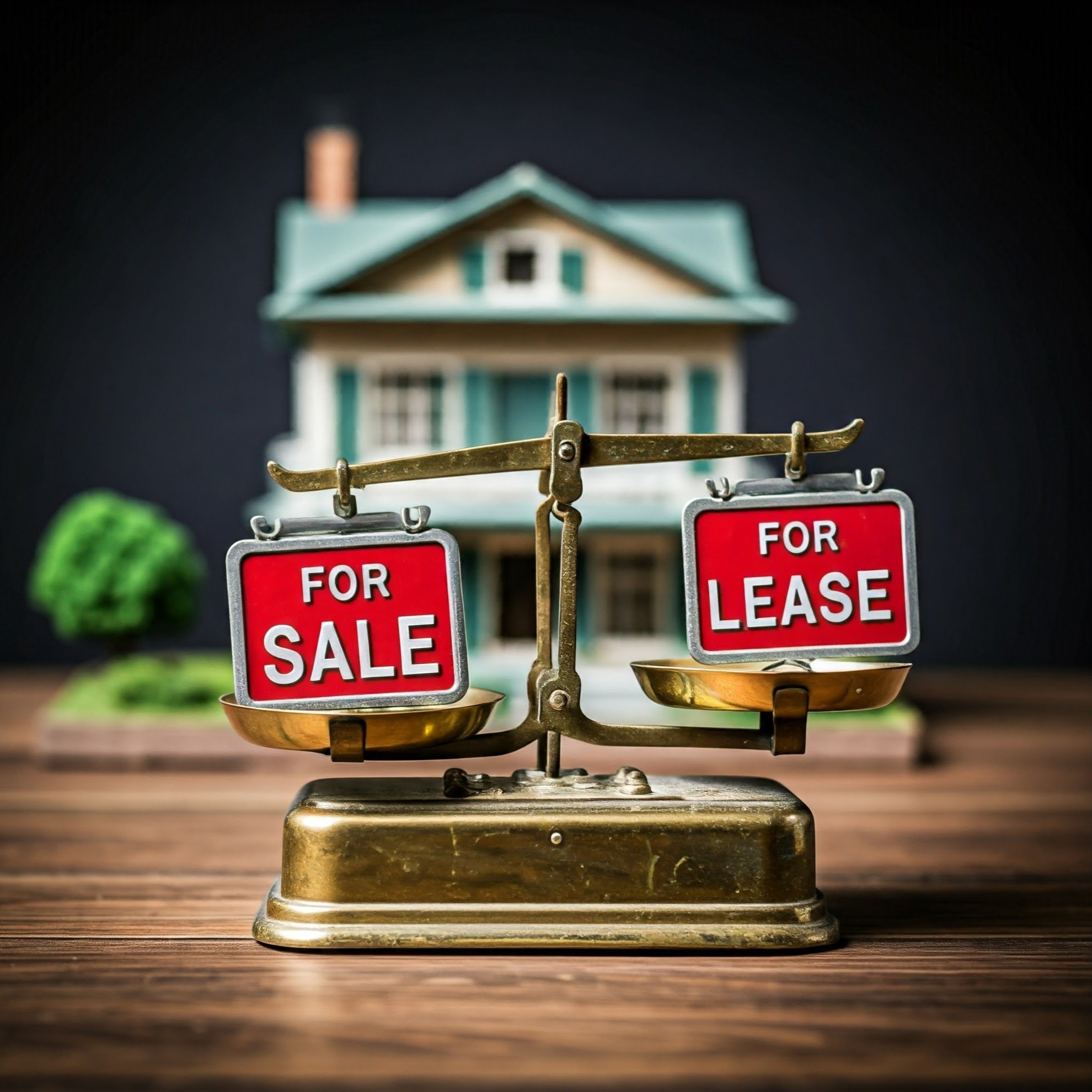The ONE Key to Making Rental Properties a Passive Investment
Rental properties appeal to many investors because they are a source of passive income. “Buy some properties, rent them out, collect the rent, pay your expenses, and put the remaining profit in the bank. Easy!”
Yet other investors shy away from rentals because they require TOO much work. “Rental investing is clearly lucrative, but it’s not for me. I don’t want to be fixing toilets, or getting emergency calls from tenants at 2am. No thanks!”
So who is right? Just how passive are rental properties, REALLY?
That’s the question I’ll be looking to answer in this article. I’ll share my personal experience with my portfolio of 25 rental properties, explaining what it’s like to manage them and how long it takes.
But I’ll also explore the single most important decision every investor has to make that impacts how passive their investments are: whether to hire a property manager, or self-manage the properties.
Let’s start there, and briefly review what a property manager does.
What is a Property Manager?
A property manager, or PM, is a person or company that manages rental properties on behalf of owners. They take care of all the day-to-day functions, allowing rental property owners to scale a portfolio without a huge commitment of time.
A good PM will collect rent, answer tenant questions, respond to maintenance issues, and perform regular inspections of occupied properties. If there is a vacancy, they will perform any necessary rent-ready work, market the property for rent, screen tenants, and sign leases. They’ll even handle the eviction process when needed. (I have another article with more detailed info on the functions of a property manager, if you want to dive deeper.)
That sounds pretty great, right? So why WOULDN’T you hire a property manager?
Common Objections to Property Management
I’ll put my cards on the table right away: investors love the income potential of rental properties, but to make that income stream truly PASSIVE, and to actually enjoy the freedom and flexibility that it can provide, there is one thing you have to do: you must hire a professional property manager.
Maybe you’re not sure about this yet. Maybe you’re thinking you could just learn how to do it on your own. Maybe you've read a particular book, or subscribed to a particular podcast, or networked with other investors who self-manage, and you think it sounds doable.
Trust me, I’ve heard all the objections. Here are some of the most common ones, and my responses to them:
“The PM charges 8-10% just to collect the rent! I’d rather save that money.”
But how much is your TIME worth? It takes me no more than a few hours per month to manage my portfolio of 25 properties. How do I do it? The secret is that I DON’T manage them — my PM does.
Yes, a PM will charge 8-10% of rent, plus a leasing fee to place a new tenant. For me, those fees currently amount to over $30,000 per year! That may sound like a lot of money, but this is a great trade for me, because it unlocks the freedom to do so many other things with my time (including writing for this blog, and providing private coaching to new investors.) If I were to self-manage my portfolio, it would be nearly a full-time job — and not a particularly pleasant one. This would defeat the main purpose of the portfolio in the first place, which is to provide more choice and flexibility in how I spend my time.
Plus, my PM does a LOT more than collect rent, as I’ve already described above.
If you self-manage, you’re not an investor — you’re a landlord. And I guarantee that landlording is worse than the job you’re doing now.
“They won’t take care of the house like I will.”
You’re right — in most cases, they’ll take care of it better, faster, and cheaper than you would. This is especially true when it comes to tenant screening and placement, the task that most often derails investors who choose to self-manage.
While you do have to keep an eye on what your PM is doing, and occasionally ask questions or challenge them, for the most part you want to let the pros do their job so you can live your life.
“I don’t want to be a small fish in a big pond.”
When you buy something on Amazon, do you worry that they won’t give your order priority because you’re a “small fry” customer? Of course not. Because you know that they have robust systems and processes. You know they’ve invested in software and automation. And you know your order will be handled quickly and efficiently, like all the others, and be on your doorstep when promised nearly every time.
It's the same with a professional PM. Your PM may manage thousands of other properties, but this doesn’t mean that they’ll handle your house differently than any of the others. Because they too have invested in systems, processes, software, and people to ensure they can successfully manage ALL their properties to a consistent standard.
So don’t worry about being in a big pond. (In fact, the bigger the better, as we’ll discuss in a second.)
“I heard most PMs are awful. How can I find a good one?”
It’s like anything else — some are good, some are bad. Therefore, you have to vet your PM and know what you’re looking for. This is such a critical task that I created a PM Vetting Checklist with 58 questions to help my private coaching clients interview and choose a PM. (In the markets I know best, of course, I already know who the good PMs are, and recommend them and other trusted partners to my clients as part of the coaching program. BTW, if you’re interested in private coaching with me, you can schedule a free initial consultation here.)
I’ve had both good and bad property managers. The difference is night-and-day when it comes to the performance of your portfolio, as well as your peace of mind, so you really want to get it right. In addition to your own vetting, it’s a good idea to speak directly to their customers, and ask others in your market about the reputation of various PMs — i.e. you can ask your agent, lender, turnkey provider, etc., who they recommend for property management.
What Makes a Good Property Manager?
Many new investors think they want a PM who is friendly, easy to talk to on the phone, and responds right away to their questions or calls.
But this stuff is fool’s gold, and doesn’t actually matter that much. Focusing on first impressions and your emotional response to someone on the phone can lead you to pick a bad PM.
What you should REALLY be looking for in a property manager is what I call the “Three L’s”:
Large. As I mentioned earlier, a large PM is a good thing for you, because it shows that they’ve built a successful business and have likely invested in systems, people, and software. Ideally your PM should be managing 1,000+ doors, but even larger is just fine.
Local. Property management is a fragmented industry; still, there are a few national brands that are trying to grow under a single banner. Avoid these. Find a company that is fully embedded and invested in your chosen market.
Long-lived. If they’ve been in business for decades, they’re probably doing most things right.
If you find a PM that manages thousands of properties, and has operated in your investment market (and nowhere else) for decades, chances are very good that they will meet your needs and provide a solid operational foundation for the long-term success of your investments. Read more: How to Choose a Property Manager.
Will it always be perfect with your PM? Of course not. But when they do screw something up, a good PM will acknowledge it and fix it (and sometimes even make a financial accommodation to you, if that’s appropriate to the situation.)
My Personal Experience with Property Managers
As always, I want to reference my personal experience in my blog articles, and be as transparent and honest as I can be. This is especially valuable when it comes to understanding the experience of property management, and weighing this against the option of self-managing.
So here is my unfiltered, unvarnished, brutally honest take on my property managers over the years. I’ve used three different managers in my market, and I’ve had exposure to many others in multiple markets as part of my private coaching work, so I feel like this is a reasonable sample on which to base general conclusions.
Some PMs are definitely better than others
I started my remote investing journey in 2018, with one of the big PMs in my market. Things were OK for a while, but after about a year, I was becoming dismayed at their poor communication and — more distressingly — the errors and deficiencies in their maintenance processes. It was even common for them to screw up the accounting every couple of months, forcing me to request refunds and corrections.
After 18 months, I’d had enough, and moved the entire portfolio (16 properties at that time) to a new manager. The difference was immediately noticeable. Communication was better, their systems & processes were more secure — even on-time collections improved with the same exact set of tenants. In short, they simply did the job better.
Both these PMs met the “Three L’s” criteria I outlined above, but still, one of them was much better than the other. Finding these “best in class” PMs is absolutely critical. (And if your first PM misses the mark, try again — do some more research, ask around, and pick a new one.)
Even good PMs are sometimes pretty bad
So once I moved the portfolio to the new PM, everything was great, right?
No, not really. I could fill a book with the stories of things my PMs have screwed up, such as:
Fixing something that breaks again a few months later
Spending money to repair an AC unit that is well beyond life and should have been replaced instead
Renewing a tenant at a lower rent than they should have
Not responding to my emails for days (and days…and days)
Accounting & reporting mistakes
This is FAR from a comprehensive list, and I know there will continue to be issues in the future. But I don’t expect perfection — a PM is just a company, run by people, so there will inevitably be mistakes. What I care about most is the consistency of their main PM functions, and whether they fix the mistakes that DO happen, and make it right in the end.
Despite the problems, a PM beats the alternative (by a LOT)
This is the main point. While I have to keep an eye on my PMs, and while they do screw things up sometimes, it sure beats the alternative.
The truth is that those occasional snafus are the exception that proves the rule: 98% of the time, my PMs do good work, make the right decisions, and manage my portfolio as well (or better) than I could do myself. They allow me to make these kinds of returns while focusing on other things that are more important in my life — my friend and family, my coaching clients, and much else.
In a typical month, I spend no more than a few hours on my rental portfolio. This might include activities like emailing or texting with my portfolio rep on a particular issue, reviewing and approving a scope of work, suggesting an asking rent on a vacant property, etc. But for the most part, I let my PMs handle all the day-to-day work, and just wait for the money to be deposited in my bank account at the end of the month.
The odd frustration with my PM is nothing compared to the massive frustrations I would encounter if I managed the properties myself. I absolutely SHUDDER to think about handling every situation across my 25 propeties, every tenant, every maintenance call, etc., on my personal cell phone. Yikes!
In truth, I don’t think I could do it. Without professional property management, I likely would have abandoned rental property investing long ago. And that would put me right back where I started on this real estate journey: in an office job I desperately wanted out of.
Conclusion
Hire a professional PM because:
Your time has enormous value
They’ll do many things better than you will anyway
They have the “three L’s”: large, local, and long-lived
About the Author
Hi, I’m Eric! I used cash-flowing rental properties to leave my corporate career at age 39. I started Rental Income Advisors in 2020 to help other people achieve their own goals through real estate investing.
My blog focuses on learning & education for new investors, and I make numerous tools & resources available for free, including my industry-leading Rental Property Analyzer.
I also now serve as a coach to dozens of private clients starting their own journeys investing in rental properties, and have helped my clients buy millions of dollars (and counting) in real estate. To chat with me about coaching, schedule a free initial consultation.


























